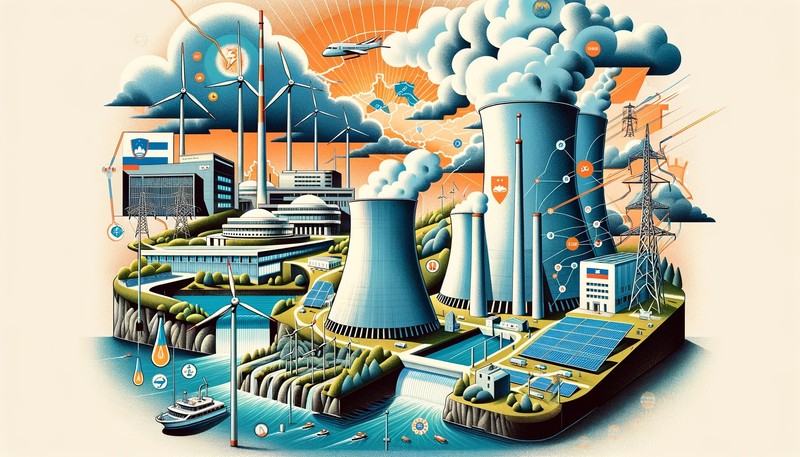Electricity market in Slovenia
Energy sources in Slovenia
Slovenia's energy sector is marked by a balanced mix of sources. The country's electricity generation is largely reliant on nuclear power and hydroelectricity. Nuclear energy, primarily from the Krško Nuclear Power Plant, plays a crucial role in meeting domestic electricity needs while ensuring energy stability. Additionally, Slovenia's diverse landscape, featuring rivers and mountainous regions, makes hydroelectric power a significant contributor to its energy mix.

Alongside these primary sources, Slovenia is also exploring renewable energy options, including wind and solar power, to further diversify its energy portfolio and reduce reliance on fossil fuels.
Main source of energy
Nuclear energy stands as a primary source of electricity in Slovenia. The Krško Nuclear Power Plant, jointly owned with Croatia, is a major element in Slovenia's energy infrastructure, providing a significant portion of the country's electricity. This reliance on nuclear power underscores Slovenia's commitment to a low-carbon energy future.
Hydroelectric power also plays an essential role, leveraging the country's natural water resources. This blend of nuclear and hydroelectric power forms the backbone of Slovenia's energy strategy, aligning with its environmental goals and energy needs.
Slovenia in the EU electricity market
As a member of the European Union, Slovenia is an active participant in the EU electricity market. This involvement ensures that Slovenia can trade electricity across borders, enhancing energy security and market efficiency within the EU. Slovenia's strategic position allows for connectivity with neighboring countries, promoting regional energy cooperation and stability.
The country is also working towards integrating more renewable energy sources into its mix, aligning with EU directives and targets for a sustainable energy future.
Challenges and future prospects
Slovenia faces the dual challenge of maintaining its energy independence while transitioning to a more sustainable energy mix. Modernizing energy infrastructure and increasing the efficiency of energy production and distribution are key priorities.
The country is poised for growth in renewable energy sectors, particularly wind and solar, which will complement its existing nuclear and hydroelectric power sources. These developments are vital for Slovenia's long-term sustainability and its commitments to EU environmental standards.
